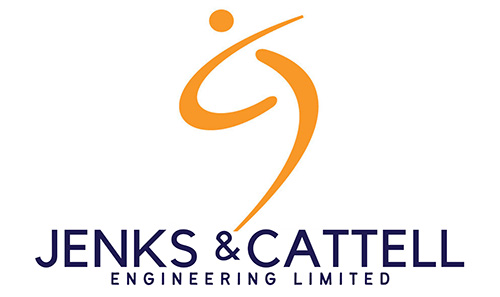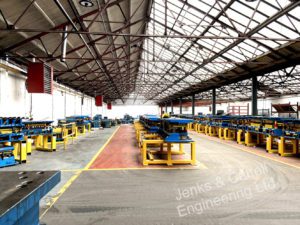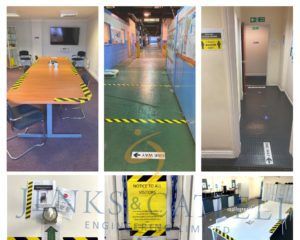Jenks & Cattell Engineering are working in collaboration with their customers to develop electric powertrains and electric commercial vehicles.
Since the 1950’s, Jenks & Cattell Engineering in the West Midlands have been at the forefront manufacturing metal parts for the automotive market; constantly investing in their skillset and infrastructure for the development of the industry, with a particular movement towards the use of aluminium material over the last decade.
Nick George, Sales Director said: “Having the expertise in forming complex aluminium metal assemblies and stampings allows our customers to benefit from the light material-high strength ratio material benefits.
Electric vehicle manufacturers can take advantage of our aluminium forming capability to increase efficiency and weight of products to diversify traffic towards low emission vehicles.”
The engineering company is currently developing a series of prototypes of metal bracketry for EV as well as a large metal assembly which functions as a battery tray.
Proudly, Jenks & Cattell Engineering have previously manufactured brackets for harnessing cables for battery supports and casing for end EV users including the Porsche Taycan; the first electric sports car.
Nick George continues to say:
“Now working with electric commercial vehicles, including buses, means the batteries are physically larger as the vehicles are in use for a longer period in comparison to a personal EV. Power outlet for commercial buses will be in excess of ten hours and the general size of the vehicle is larger, therefore we are manufacturing metal products up to 2-meters in length – making use of our large bed stamping equipment.
As a lot of technology remains in the development stage, we are equipped to support projects from prototype through to production and having both laser cutting and press machines is ideal for various changes in design and quantity.”
Jenks & Cattell Engineering Ltd, operate from Neachells Lane in Wednesfield and have continued to develop metalwork EV projects throughout the COVID-19 crisis with a reduced number of employees, with remaining employees on the Government furlough scheme.








